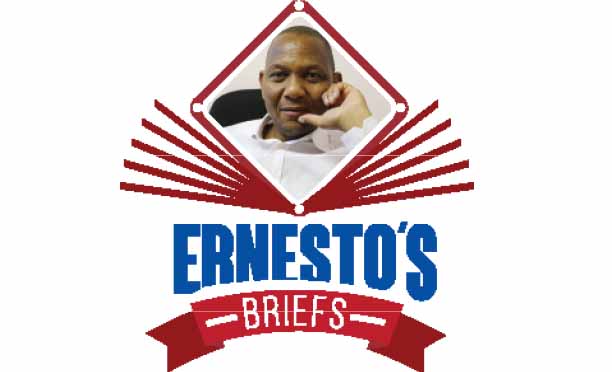The calm after the storm
As sure as the sun rises, it will set. In the same vein, there is calm after every storm. And this is what the nation expects after the turbulent year of violent bickering within the ruling party.
The real work of governance must now begin in earnest for the incumbent president. He must not allow any sideshow to derail him from his mandate of taking the country to the next level.
Not even the looming general elections shoud be an excuse for complacency. The real work has begun and government must be seen to be acting on the needs of the people.
The next months provide an opportunity for us to get a peep into the various political parties’ manifestoes. It’s a perfect time to sift truth from rhetoric, especially in respect of the rullng party, whose polices and programmes are inseparable with those of government.
A party in government can’t afford to slumber it must come up with tangible solutions to the problems and hardships that are daily faced by the populace, hence the need for a symbiotic relationship between party and government. The policies of the ruling party must influence, direct and shape the policies of government at all times. For this reason, the ruling party must be a transformative entity that keeps on reinventing itself at all times.
But in our case, we see some dislocation between the party and government in terms of policy direction. Take for example the poverty eradication mantra of former president Ian Khama.
What informed this policy stance? Was it a product of party consultative forum, or were it just plucked from the air, as a populist stunt and force-fed the government to implement?
This vacuum explains the staggering policy implementation failure by the current government. We are told that government has the best policies but that implementation is the only problem, yet we are never told why government machinery fails to implement the policies.
It is because most of them are plagiarised from the developed world with little or no regard at all for the cost factor. We get stuck at the point when we want to finance them and eventually decide to shelve them. We can no longer practise this type of government. Batswana deserve a ruling party that is in sync with their needs, that controls the government bureacracy through the policies it develops. These polices ought to come from the people, they must be products of consultation with the electorate.If democracy is the rule of the people, by the people and for the people, it follows then that government policies and programmes must flow from the people as well.
Now that the storm is over, we expect President Dr. Mokgweetsi Masisi to sit firmly on the driver’s seat and steer this country towards prosperity. We have heard all the noise about a knowledge-based society, how do we arrive at that destiny given our current literacy rates and the state of our IT inftastructure? These are the questions that require answers by way of policy positions.
But before we get there, Masisi must make good on this promise – his professed commitment to the rule of law! And here is his challenge that will prove once and for all that he is a stickler for the rule of law.
We demand that President Masisi must extricate the Legislature from the stranglehold of the Executive and by so doing give life to the principle of separation of powers. Many politicians since the days of bo-Maitshwarelo Dabutha and Paul Rantao have cried that Parliament is a mere department within the Office of the President.
In line with democratic principles which we have acceeded to at the level of SADC Parliamentary Forum including other kindred principles to which we aspire by virtue of our common association with bodies such as Commonwealth Parliamentary Union and Inter-Parliamentary Union, whose values and tenets Botswaana subscribes to, we call on the President to pave way for a truly independent Parliament in Botswana.
Corruption, theft and looting of the state coffers continue unabated under the watch of the present ruling party precisely because our Parliament is a mere extension of the Executive. It cannot, try as it may, hold the Executive to account.
If indeed Masisi be a bonafide democrat, let him start by unbundling this ungodly alliance and freeing our Parliament to be a truly indepenent arm of government with its own programme of action and budget, quite separate from the executive.After this we shall then call on the President to free the so-called Independent Electoral Commission. IEC must be seen to be independent. It must have powers to call even the president to order; it must be able to reguate all political parties in the period leading to elections, during elections and after elections using their Code of Conduct.
IEC must have powers to invalidate an election if it feels it has been rigged; and rigging does not only happen during voting or counting of ballots, but includes the whole process such as party funding; publicity and marketing and equal access to state resources that are made available for contesting parties.






